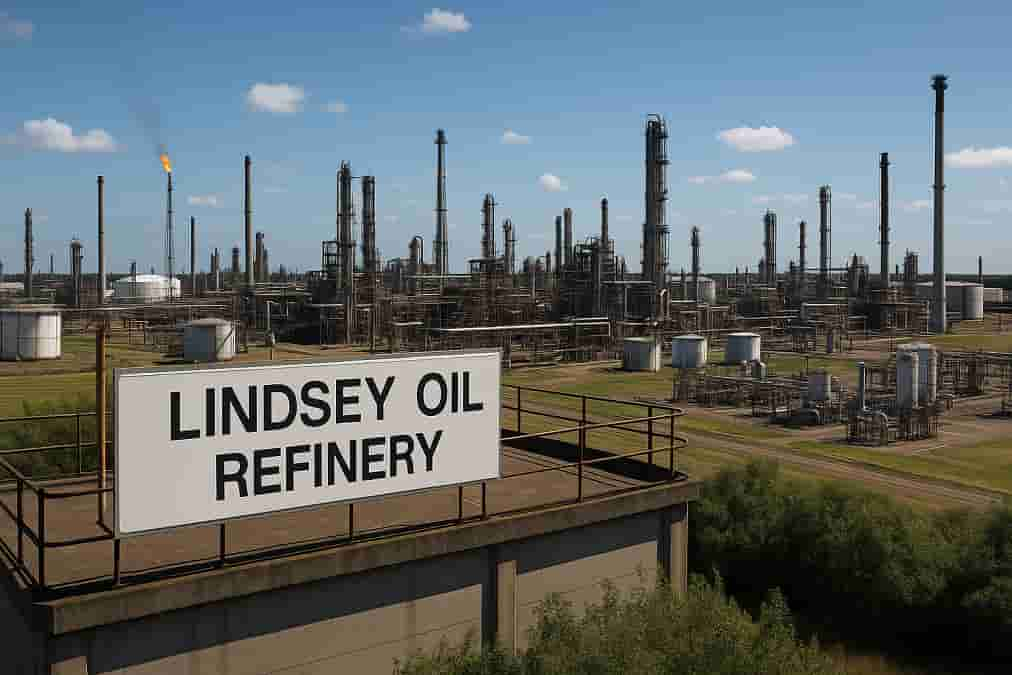The Workers Union has learned that more than 600 jobs are in peril after the parent company of one of Britain’s major oil refineries entered administration, raising fresh fears for the UK’s already fragile energy infrastructure and the livelihoods of workers employed at the site.
State Oil, the owner of the Lindsey oil refinery in North Lincolnshire via its subsidiary Prax Group, officially appointed administrators on Monday. The announcement was rapidly followed by a winding-up order issued against the refinery itself, marking a significant development in the ongoing crisis. A liquidator has now been appointed to oversee proceedings.
The Lindsey oil refinery is one of only five remaining large-scale oil refineries in the United Kingdom, and this latest setback comes in the wake of the recent closure of the Grangemouth plant in Scotland. The facility, originally constructed in 1968, has the capacity to process around 113,000 barrels of oil daily, making it a vital cog in the UK’s energy network.
Jobs and communities in the balance
The impact of the collapse is already being felt by the more than 180 employees directly employed by State Oil, and an additional 440 workers connected to the Lindsey refinery operations. These workers, many of whom have spent decades in the oil industry, now face a future clouded by uncertainty.
The Government has acknowledged the seriousness of the situation. Speaking on Monday, Energy Minister Michael Shanks described the collapse as “deeply concerning” and criticised the firm’s leadership, stating: “There have been longstanding issues with this company and workers have been badly let down.”
Mr Shanks further revealed that the Secretary of State has written to the Insolvency Service to request an immediate investigation into the conduct of State Oil’s directors. “The Government will ensure supplies are maintained, protect our energy security, and do everything we can to support workers and the local community,” he said. “We call on [the company] to do the right thing and support the workers through this difficult period.”
While ministers have moved quickly to manage the risks to fuel supplies, the fallout is intensifying for workers. With mounting concern about redundancy, local economies built around the refinery could suffer long-term consequences. For many UK workers in the oil sector, this is yet another reminder of the instability that continues to haunt the industry.
Calls for support and transparency
Clare Boardman, joint administrator of State Oil and Prax, echoed the urgent tone in a public statement, noting: “We appreciate that this is a very difficult and uncertain time for the employees and everyone involved and we will be on site to support them during this challenging period.”
Boardman also confirmed that while the core operations at Lindsey are undergoing insolvency, other parts of the Prax business — including retail petrol stations and upstream activities across the UK and Europe — remain unaffected and may be considered for sale.
As of now, Prax Group has not released any further comment on the developments, nor clarified the future of the wider business portfolio.
The wider implications
The collapse of State Oil marks a critical moment not only for UK workers made redundant in the oil industry but for the broader conversation around energy resilience and workforce sustainability. The government faces growing pressure to address the consequences of infrastructure failures and provide a clearer roadmap for affected industries.
With the UK refining landscape shrinking, questions are also being asked about contingency plans, long-term strategic reserves, and the protection of national assets critical to daily life.
In the meantime, those employed at Lindsey refinery, and the communities that rely on its operations remain in limbo.
So in Conclusion
As this story unfolds, The Workers Union will continue to press for transparency, timely information, and adequate support for every worker affected. These are more than just figures on a balance sheet — they are men and women who have powered the nation for decades.




